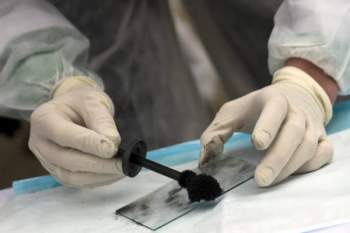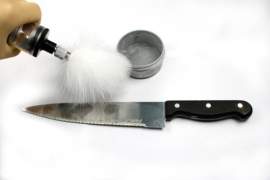
Discover What Forensic Science Jobs Entail

What is Forensic Science?
Forensic science, which is a combination of broad sciences, is used to answer questions revolving around crime scenes and legal matters. Forensic science may be applied to a felony or a civil action. However used, the field of forensic science will apply various technologies and formulas to expedite an investigation.
Forensic science, because of the agglomerated framework, is often described as a broad discipline within the science and law enforcement community. Within forensic science exists a number of specific disciplines, which may range from forensic veterinary science to forensic anthropology.
Individuals involved in the field of forensic science are part of an ancient tradition where the facts of legal matters are thoroughly analyzed in scientific manner to gain pertinent information that can ultimately be used in an investigation and subsequent prosecution.
Forensic Science Training
Those involved in forensic science jobs possess extensive training in their particular field of expertise. This training is typically paired with knowledge for handling evidence to maintain the appropriate chain of custody that is required to impede the compromising of evidence.
Individuals involved with forensic science jobs are skilled at evaluating evidence extracted from a crime scene. Following the obtainment of evidence, these individuals will use principles of the scientific method to generate reports which are used to help members of law enforcement find criminals.
Those involved in forensic science jobs can also be used to testify in court. As a type of expert witness, these individuals will reveal how the evidence was gathered, handled and subsequently analyzed. The types of equipment used to extract the evidence will also be elucidated upon in a court setting.
Forensic Science Jobs Explained
Individuals who work in forensic science will perform such activities as investigating physical evidence from crime scenes, collecting DNA samples and conducting tests on weapons. An individual interested in forensic science jobs must obtain a postgraduate degree in a forensic science field to pursue a career in criminology.
With a degree in forensic science, an individual can work as a crime laboratory analyst. These individuals study physical evidence extracted from a crime scene. These types of forensic science jobs evaluate such evidence to help law enforcement officials piece together a crime based on scientific discoveries.
Within the realm of forensic science jobs is a laboratory technician. Forensic science technicians are responsible for collecting and analyzing samples and putting together reports based on the evaluations of such evidence.
These types of forensic science jobs are typically asked to testify in criminal court cases as expert witnesses. As an expert witness, the individual will provide scientific information regarding their discoveries.
A forensic science diploma is also the starting point to pursue a career as a ballistics expert. These types of forensic science jobs help detectives and other law enforcement agents identify the types of firearms used to commit a crime. To become a ballistics expert, the individual will need a background in forensic science, as well formal training in weaponry.
NEXT: Forensic Science Defined





















